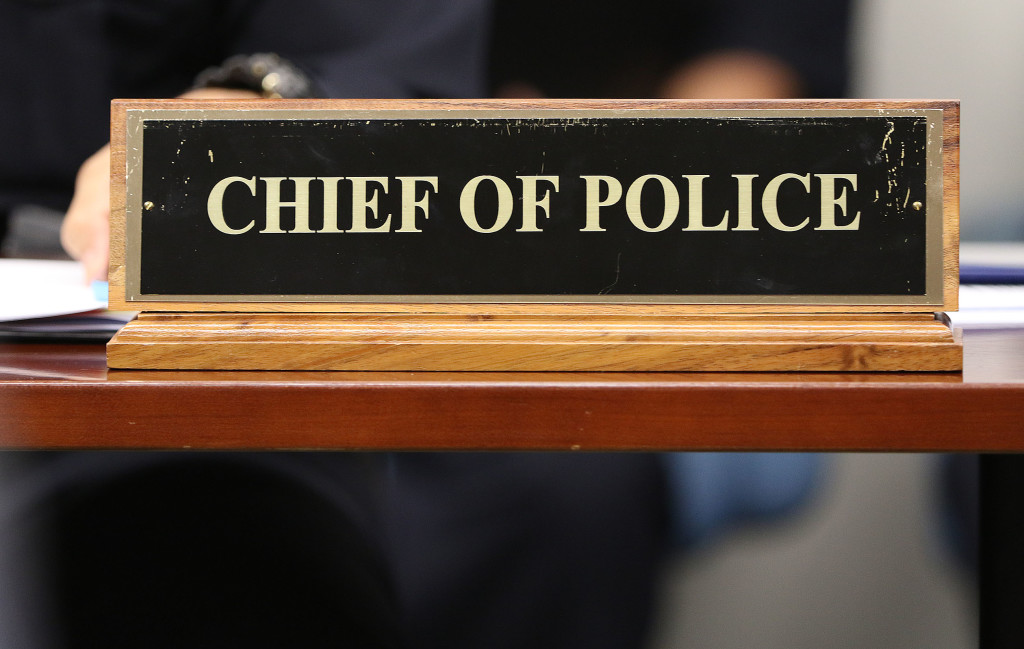

By Chief Joel F. Shults, Ed.D.
While at lunch with a former police chief of mine and the county sheriff, the sheriff remarked that he needed to start campaigning for the next election. The chief chuckled. “You’re lucky that you only have to worry about your job every four years. I have to work to keep my job every Tuesday night when the city council meets!”
Very few law enforcement executives have job protection. This reality keeps many potential candidates away from the top cop slot. As officers achieve advancement in rank, their job security remains intact until that final step behind the chief’s desk. Political whim and public opinion can unseat a police chief overnight.
Does this mean that police chiefs are necessarily politicians who must bob and weave, agree with those in power above them, and cater to the shifting winds of politics? To some degree, yes. Police chiefs are creatures of politics. They are appointed by elected officials. Some chiefs have maneuvered and manipulated their way to the top. They have deftly catered to those who can be of use to them and cleverly hindered those who might compete with them. They know how to play chess with scandal, personal weakness, egos, rumors, and rewards. It is this kind of chief that does no favors to their officers unless it benefits them personally.
This kind of chief knows who the influencers are and caters to them shamelessly. Businesses and individuals with economic influence in the community are treated differently than the average citizen. In these departments, when a patrol officer hears that the person against whom they are about to take some enforcement action says they know the chief, or threatens to have their badge, there is good reason for the officer to worry. These chiefs don’t have to be corrupt, just slanted toward self-interest rather than equal treatment.
The ethical officer who earns the title of chief through their meritorious lifetime of service must still be a diplomat. The difference between the diplomatic chief and the politically motivated chief is the acceptance of the reality of losing their job. The chief who refuses to sweep things under the rug, who insists on treating all citizens equally, and who is willing to defend officers who have made controversial but reasonable decisions, must be willing to accept being fired.
The ethical chief will think first of their mission to their community. They will think second of their responsibility to their officers. Only after these two essentials are assured can an ethical chief think of themselves and their careers.
An ethical chief is not invested in preserving his or her ego. They will listen to their citizenry, listen to ideas and opinions of the officers under their command, take responsibility for decisions and the blame when they are wrong. They will give credit where credit is due and not claim others’ work as their own. They will pull every string to get funding for their agency’s needs and be good and frugal stewards of the resources they have.
One of the potentially long-lasting and negative results of the current reform movement may be the gradual elimination of some of the most ethical police executives. Decisions on policy, reform, and funding are so often being made based on political expediency in complete defiance of facts, that chiefs who argue against irrational changes for the sake of change can be thrown to the wind. While some compromise is inevitable, demands on chiefs to make changes that are harmful to their officers and harmful to the mission of protecting the public must be resisted. The choice is to acquiesce to the superficial politics of the moment, or to do as little harm as possible and still keep their position in order to be a positive influence. At some point, the desire to remain and build the agency up can result in an intolerable ethical choice of doing harm.
In turn, this pushback on ethical leaders trying to stem the tide of rising crime and disorder in the face of deconstructing their police department can give rise to those political opportunists who are all too happy to satisfy political expediency to get and keep the rank of chief.
Chiefs know they can be replaced in short order. We must maintain a cadre of ethical leaders who can maneuver in the fickle realm of politics and retain their mission and character. While we thank police officers for their service, those police executives who have the backbone to stand up against the call for the dismantling of our law enforcement institutions should be given our thanks as well.